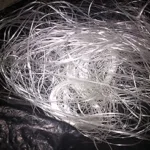The role of Calcium Carbonate in the Gold industry
- Home
- CALCIUM CARBONATE
- The role of Calcium Carbonate in the Gold industry
The role of Calcium Carbonate in the Gold industry
calcium carbonate (CaCO3) plays an important role in the gold industry in several ways:
- Gold extraction:
- Grinding: Calcium carbonate is used as a grinding material in gold ore processing. It helps break up rocks containing gold into smaller particles, which facilitates the gold extraction process.
- Flotation: Calcium carbonate is used as a catalyst in the gold ore flotation process. It helps bind gold particles to air bubbles, allowing them to be separated from the rest of the materials in the ore.
- Leaching: Calcium carbonate is used as a filtration medium in the cyanide gold extraction process. It helps remove impurities from the cyanide solution that contains gold.
- Gold purification:
- Refining: Calcium carbonate is used as a refining material in the gold refining process. It helps remove impurities from raw gold, such as copper, lead, and zinc.
- Polishing: Calcium carbonate is used as a polishing material in the gold polishing process. It helps give gold its distinctive shine.
- Jewelry industry:
- Molds: Calcium carbonate is used as a material for making molds for gold casting. It is characterized by its ease of formation and ability to withstand high temperatures.
- Plating: Calcium carbonate is used as a plating material in the manufacture of gold jewelry. It helps give the jewelry a shiny and attractive appearance.
- Other uses:
- Corrosion prevention: Calcium carbonate is used as a protective coating on equipment used in the gold industry. It helps prevent equipment corrosion from acids and chemicals used in the gold extraction process.
- Carbonic acid production: Calcium carbonate is used to produce carbonic acid, which in turn is used in some gold extraction steps.
Properties of calcium carbonate that make it suitable for the gold industry:
- Ease of grinding: Calcium carbonate is easily ground into a fine powder, making it suitable for use in grinding and flotation operations.
- High Density: Calcium carbonate has a high density, which makes it suitable for use in filtration processes.
- Chemical reactions: Calcium carbonate reacts with some chemicals used in the gold industry, such as hydrochloric acid, making it suitable for use in refining processes.
- Formability: Calcium carbonate can be formed easily, making it suitable for use in gold-casting molds.
- NON-TOXIC: Calcium carbonate is non-toxic, making it safe to use in jewelry making.
Risks of using calcium carbonate in the gold industry:
- Dust: Inhaling calcium carbonate dust can irritate the respiratory system.
- Pollution: The use of calcium carbonate can lead to environmental pollution if not disposed of properly.
Alternatives to calcium carbonate in the gold industry:
- Dolomite: Dolomite is sometimes used as a substitute for calcium carbonate in some gold-making processes.
- Lime: Lime is sometimes used as a substitute for calcium carbonate in some gold-making processes.
Recent developments in the use of calcium carbonate in the gold industry:
- Environmentally friendly mining technology: New technologies are being developed to use calcium carbonate in the gold industry in a more environmentally friendly way.
- New extraction techniques: New techniques are being developed to extract gold from gold ore using calcium carbonate.
About the largest company in grinding and producing calcium carbonate Globe Stone Hills
Categories
Latest Posts
Contact the Globe Stone Hills team
Call Anytime
Gallery
- © Copyright 2024. Globe Stone Hills




















